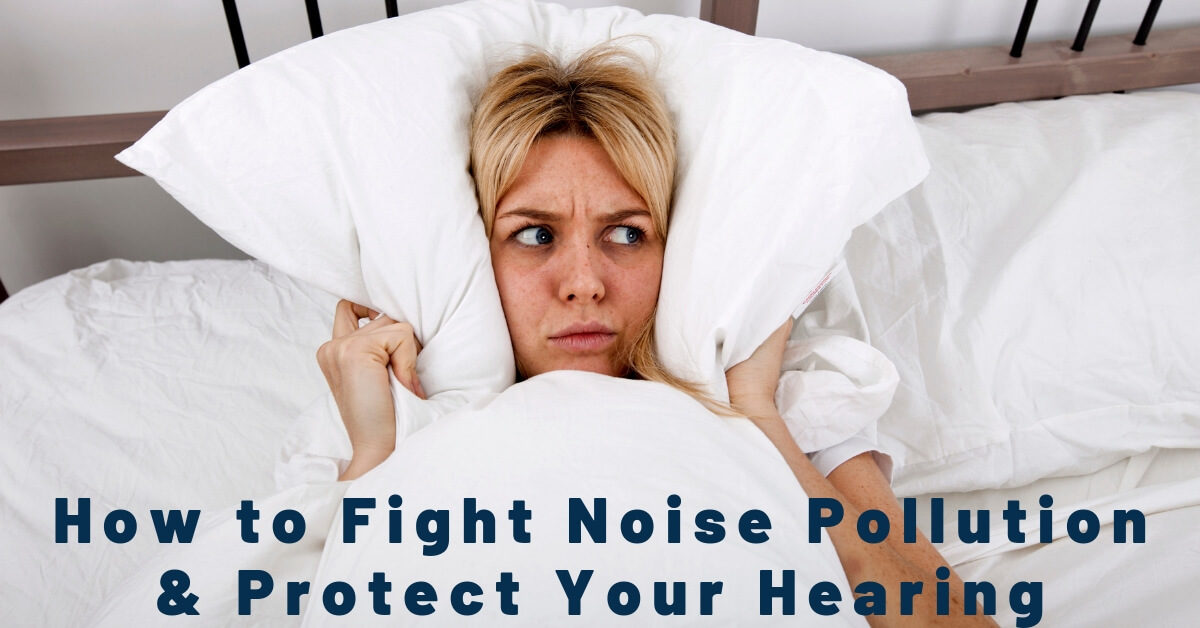Noise pollution has become a major problem in all our cities. From traffic noise to blaring music at the gym to your home appliances, unnatural noise is all around us. The construction site you pass on your way to work and the noise in your children’s school all add up to a lot of daily strain for our ears. Millions of Americans feel the affects of noise pollution, and struggle with insomnia, irritability, difficulty focusing, heart problems, tinnitus, and hearing loss. So, what can we do to fight noise pollution and protect our hearing?
What Is Noise Pollution?
Noise pollution is defined as excessive noise causing an imbalance in the sounds around you. These unpleasant noises are either too loud, or from an unnatural source, causing discomfort. According to the World Health Organization (WHO), noise pollution is a major threat to our health and wellbeing, and something everyone living in a city should take into consideration. The WHO estimates that unless we change our habits, by the year 2050, 900 million people will be living with hearing loss.
Coping with Noise Pollution
Many people turn to earbuds or headphones to cope with noise pollution. Rather than be exposed to a barrage of sounds, they can hear their own music and block out the annoying background noise. While this might take care of the noise pollution, it could be leading to major another problem: hearing loss. The rise of earbud usage has had a dramatic effect on rates of hearing loss among teens and young adults. In fact, a 2018 study by researchers in Denmark found that among 9 to 11-year-olds, 14% showed the signs of hearing loss!
Far more people are reporting hearing loss than ever before, and over use of personal listening devices is the culprit. Using earbuds to drown out background sounds, we often turn up the volume far too high, and damage our hearing by playing such loud music directly into our sensitive ears. We also listen for far longer than ever before, and spend hours with our earbuds in, never giving our ears a break.
How to Fight Noise Pollution
Fighting noise pollution with earbuds isn’t the way to go, but there is another solution. Rather than using standard earbuds, invest in noise cancelling headphones that will block out the background sounds and protect you from noise pollution. These headphones emit a low anti-noise signal that combats the sounds around you. “Noise-canceling headphones can minimize problems because you don’t have to play the headphones as loud to drown out noises,” says Maria Rerecich, director of electronics testing at Consumer Reports. “You can hear the music at a moderate level without having to blast it.” If you’re often in extremely noisy places, where you have to yell to be heard by the person next to you, it’s essential that you wear hearing protection, and get noise canceling headphones to protect your hearing.
To listen safely, employ the 60/60 rule. Only listen at 60% of the maximum volume of your devices, and take a break every 60 minutes to give your ears a rest.
The Future of Noise Cancelling Technology
It might not be long before noise cancelling technology makes its way into our offices, schools, and homes. Researchers at the Coordinated Science Laboratory at the University of Illinois have combined wireless networks with noise cancellation technology by placing a microphone in the environment and measuring the sound. These sounds are transmitted to an earpiece, emitting anti-noise signals. Because these signals travel faster than sound, the technology will be able to sense, transmit, and block noise pollution before it even reaches your ears. This technology could be the ultimate solution to fighting noise pollution in our cities.
Pacific Hearing Care
Are you worried that you or a loved one is struggling with hearing loss? Call us today at Pacific Hearing Care to book a hearing test, and do the right thing for your hearing health. Our team of hearing health specialists will determine your level of hearing loss, and find the perfect device to help you hear. Talk to us about the noise pollution in your neighborhood and in your home, and we’ll help you find ways to protect your hearing and the hearing of the people you care about the most.

